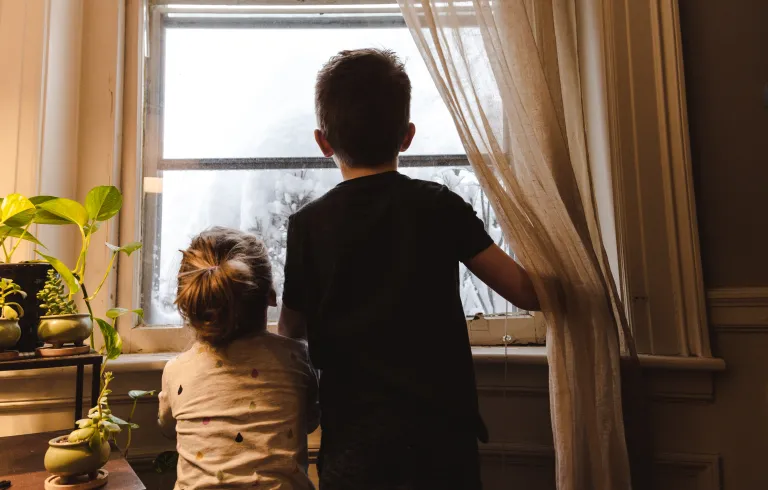
Support children during parental separation, keep communication open and positive. Involve them in decision-making and focus on their well-being.
When a child is resistant to going to one of their parent's homes, it's understandable to feel concerned and want to address the situation. The first step is to approach it calmly without making a big fuss. Depending on the child's age, there could be various reasons for their resistance, such as not feeling well, missing out on something happening at the other parent's home, or feeling uncomfortable or unhappy there.
As the parent who the child wants to stay with, it's natural to have mixed emotions. You may feel pleased that your child has chosen you, but also frustrated that your plans are disrupted. On the other hand, as the parent who feels rejected, it's common to blame your ex, feel hurt, frustrated, or shocked. However, it's essential to focus on the child and ensure they feel happy, comfortable, and safe when moving between both parents' homes.
It's important to remember that even though your relationship as a couple has ended, you're still both parents, and your relationship with your children continues. Unless there are safeguarding issues that make it unsafe for the child to see one of the parents, maintaining contact with both parents is crucial, and it's best to work together to ensure this happens. If it's challenging to work together due to feelings around the break-up, it may be helpful to seek the help of other relatives, counselling, or mediation. In some situations, the court may have to make a final decision if parents cannot come to an agreement.
Remember that you're not alone in this situation, and seeking support from family, friends, or professionals can make a significant difference. With the right approach and attitude, you can navigate this challenging time and ensure that your child's well-being remains the top priority.
Signs your child doesn't want to visit you
Children of different ages and stages of separation may show resistance to moving between parents in different ways. For younger children, it's common for them to be clingy, cry, scream, or pretend to be ill. This is because young children often suffer from some degree of separation anxiety, and a separation can easily trigger this. Younger children may want the situation to be as it was, and they may want to be with both parents. Try to remember that it isn't that they don't want to be with the other parent; they just don't want to leave the parent they are with.
It's essential to be patient and work together to ensure they are comfortable with both places. You can do this by making sure that some things are familiar, like bedding and toys. Allowing them to visit for a shorter time before introducing a longer stay can also help ease the transition. It's important to be mindful of the best interests of the child and not to use children as a way of getting at your ex. Children are adaptable and will adjust to different parenting models, but what's important is that they have access to both parents and feel safe and loved with both.
As the other parent, it's important not to rush things with a young child, especially if they are leaving the parent they spend/have spent the most time with and the home they have always lived in. Think of ways to work together to enable an easy transition. There is no correct way, so it's important to find what works best in your circumstances. It may be that dropping them off is best, or it may be better that they are collected from nursery/day care so the transition is not directly between the parents.
For older children, they may vocalise their feelings by saying "I don't want to go," or they may appear sulky, disinterested, and reluctant without being able to vocalise properly how they feel. They may fear missing out on something, especially if there is some distance between the two homes, and they have a friendship group in one area and not the other. For older children who are moving between two homes, it can feel that their control to choose is taken away from them. It's important to involve them in some of the decision-making and work with them to find a situation that works for everyone.
As the parent who feels upset about the refusal to come and visit your home, it's important to ask yourself how much the other parent is actually seeing them. As teenagers and young adults, they may not be spending much time with either of you in reality. The most important thing is to remember that you are both still parents, and the relationship with your children continues even though your relationship as a couple has ended. With a supportive and patient approach, you can help your child adjust and make the transition as smooth as possible.
Understanding why your child doesn't want to visit you
It usually helps if both parents can come together and understand what needs to change. Talking together can feel tricky and you may need help and support with this. Start by thinking through carefully how best to approach the subject, and when. Some useful tips are:
- If you can, talk to your child and try to identify what is behind their resistance
- If this is not possible, as two parents discuss what you think is behind their resistance
- What do you think is behind their reluctance to visit?
- What changes can you make to address these barriers to your child visiting?
- Think about how you can break things down into smaller steps. Keep visits short and surroundings familiar - maybe start with a short visit to a familiar relative's home, for example.
- Allow your child to bring things to remind them of their other parent when they are with you.
- Remember that while routine is important, some flexibility to parenting arrangements may need to be considered, particularly if your child is not coping well.
- Speak positively about the other parent with your child to remove any guilt or loyalty issues your child may have.
- Offer special objects or mementoes, such as a photo, cuddly toy or favourite game, that they can take with them.
- What can your child suggest that would make a good visit? Your child's suggestions may not be realistic, but they may help you to consider a new solution that you can discuss with them and their other parent
- It can also help to put yourself in the position of a child whose parents have split up. Maybe you can draw on a similar experience in your own life or someone you know? What might you think or feel? This will make it easier for you to focus on those feelings and your children’s needs.
The relationship between parents and children following a separation is a journey, what works or doesn't initially can change and evolve as children grow and the situation changes. Sometimes it can start well and change when one parent gets a new partner, or a new baby comes along , in other situations a child may be reluctant to visit another parent and then gradually adjust and embrace the situation. Communicating with the child and each other in appropriate ways, keeping the focus on ensuring what is best for the child is important all along the journey. This does not mean letting the child make all the decisions, but it does mean hearing their views and ensuring that you are not letting your feelings about the other parent influence your decisions.
One question to ask is ‘what would you like your child as an adult to say?’ Most parents would say ‘ that they felt their parents did their best following a separation to ensure that they benefited from having good relationships with both parents’.
How we can help
If you’re looking for support with your relationships, we can help. We offer a range of ways to speak with a trained relationship expert including ongoing counselling, 30 minute web and phone chats, and one session therapy.
Find out which service is right for you
How you can help
Have you found this advice helpful? Make a donation to help us reach more people and continue supporting the nation’s relationships:
Can't afford to donate? We understand. Instead, we ask that you leave us a 5 star review on Trustpilot.
